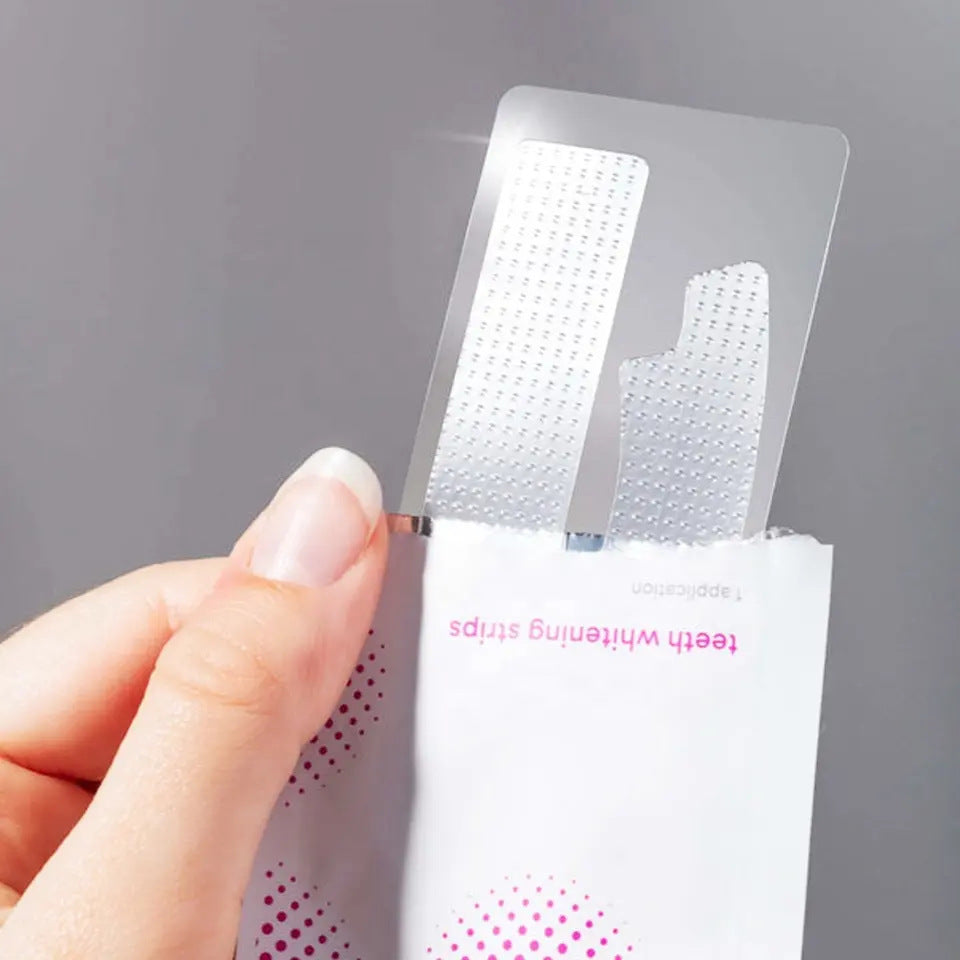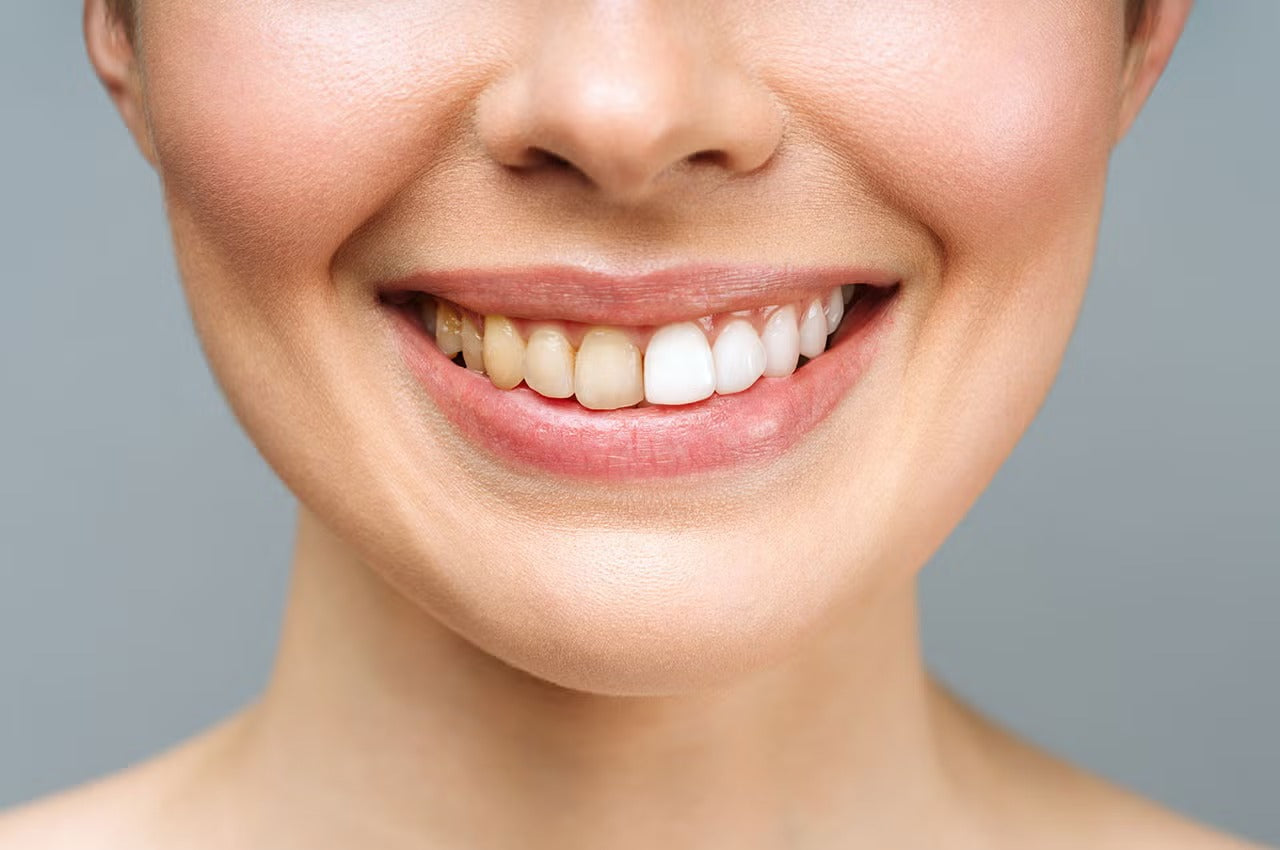Have you ever winced when drinking something cold, or felt a sudden sharp pain when biting into something sweet or sour? You're not alone. Sensitive teeth affect millions of people worldwide and can make simple, everyday actions like eating, drinking, or even breathing in cold air painful. Whether it's due to worn enamel, receding gums, cavities, or recent dental treatments — sensitivity can significantly impact your quality of life. The good news is that it is treatable. From recognizing your personal triggers to choosing the right toothpaste and tools for sensitive teeth: this comprehensive guide helps you understand the causes, find quick relief, and prevent future discomfort with practical, proven solutions.
What Are Sensitive Teeth?
Tooth sensitivity is characterized by a sharp, sudden pain or discomfort in one or more teeth when exposed to certain stimuli, such as cold or hot drinks, sweet or sour foods, or even cold air. This sensitivity often occurs when the protective enamel layer on your teeth becomes thinner or damaged, exposing the underlying dentin. Dentin contains microscopic tiny tubules connected to the nerve endings inside the tooth, which explains why stimuli can cause pain. Common causes of exposed dentin include enamel erosion, receding gums, teeth grinding, cavities, and even brushing too hard. Understanding the underlying cause of your sensitivity is essential to find the right solution and achieve long-lasting relief.
Common Causes of Sensitive Teeth
If you're wondering why your teeth feel sensitive, these are the most common causes:
- Enamel erosion from acidic foods, brushing too hard, or whitening products – Acidic drinks, aggressive brushing habits, and frequent use of teeth whitening products can gradually damage the protective enamel, exposing the sensitive dentin layer underneath.
- Receding gums exposing the tooth root – When the gums recede, often due to gum inflammation or brushing too hard, the roots of your teeth become exposed, which can lead to sharp, sensitive tooth pain.
- Cavities or tooth damage – Untreated cavities, cracked or broken teeth can create open pathways to the nerves inside the tooth, causing discomfort and increased sensitivity.
- Recent dental cleaning or whitening treatments – Sensitive teeth after a cleaning or whitening treatment are common. Although this sensitivity is usually temporary, it requires attention and proper aftercare.
- Cracked or broken teeth – Even small cracks or fractures can expose the dentin or nerves, causing pain when in contact with hot, cold, or sweet substances.
Sensitive teeth after a cleaning or whitening treatment are common and usually temporary, but they still require consistent care and proper oral hygiene to prevent long-term discomfort.
Sensitive Teeth After Whitening – Is That Normal?
Yes, it is completely normal to experience sensitive teeth after a whitening treatment. Most whitening products work by temporarily opening the pores in the enamel to remove stains. This can expose the dentin layer, causing short-term discomfort. If you have experienced sensitivity after whitening your teeth, you are certainly not alone – and the good news is that it is usually manageable.
To reduce discomfort and protect your enamel, you can switch to products specially developed for whitening sensitive teeth, such as:
- PAP+ Whitening Strips: A milder, peroxide-free solution that effectively whitens without irritating the nerves in your teeth.
- N19 Purple Whitening Toothpaste: A color-correcting toothpaste that helps brighten and even out tooth color without causing sensitivity.
Both options are safe for regular use and help minimize the risk of permanent enamel damage, making them ideal choices for people who want to whiten their teeth without causing sensitivity.
Best Toothpaste for Sensitive Teeth
Choosing the right toothpaste for sensitive teeth is essential to reduce discomfort and protect your enamel. A good formula not only soothes nerve endings but also helps block pain signals caused by temperature changes, sweet foods, or brushing itself.
When looking for the best whitening toothpaste for sensitive teeth, pay attention to ingredients like potassium nitrate, which soothes nerve activity, and fluoride, which strengthens enamel and helps prevent tooth decay.
We recommend:
- V34 Whitening Foam Tandpasta: A mild but effective solution that combines daily whitening with protection against sensitivity. Removes surface stains without damaging the enamel.
- Fruit Toothpaste Whitening Bundle: Perfect for daily use. This bundle offers enamel-protecting whitening with fun, refreshing flavors – ideal for people with persistent sensitivity complaints.

Both options are excellent choices for anyone who wants to whiten their smile without causing discomfort, making them absolute recommendations for the care of sensitive teeth.
Best Electric Toothbrush for Sensitive Teeth
If you suffer from sensitive teeth, switching from a manual toothbrush to an electric toothbrush for sensitive teeth can make a noticeable difference. Manual brushing often leads to too much pressure, which can wear down enamel and irritate exposed dentin or gums. An electric toothbrush, on the other hand, provides a consistent, controlled motion that is both effective and gentle.
We recommend:
- GlowSmile™ Smartbrush: Specially designed for sensitive mouths. This smart toothbrush offers a thorough yet gentle cleaning thanks to sonic technology and pressure sensors that help protect your enamel.
- Extra Smartbrush Replacement Brush Head – Adults: Equipped with soft, rounded bristles ideal for sensitive front teeth or areas with receding gums. This replacement brush head reduces irritation while still providing excellent cleaning.

Combining these two products offers the perfect balance of precision, comfort, and protection, allowing you to clean thoroughly without causing pain or discomfort.
Mouthwash for Sensitive Teeth
Using a soothing mouthwash for sensitive teeth can help reduce inflammation, fight plaque, and protect your enamel.
Preferably choose alcohol-free variants that are rich in fluoride.
Combine mouthwash with your daily brushing routine for the best results.
Treatment options for Sensitive Teeth
An effective treatment for sensitive teeth depends on the cause but may include:
- Switching to a desensitizing toothpaste
- Use of softer toothbrushes
- Avoidance of acidic foods and drinks
- Application of fluoride varnish or sealants at the dentist
Professional treatment may be necessary for very sensitive teeth.
Tips to Prevent Tooth Sensitivity
- Brush with a soft toothbrush, like the GlowSmile™ Smart Brush
- Use products daily that are safe for sensitive teeth (such as V34 or N19 toothpaste)
- Avoid whitening gels or strips that are not specially designed for sensitive users
- Rinse your mouth with lukewarm water
- Do not brush immediately after eating acidic meals
In Conclusion: Relief Is Possible for Sensitive Teeth
Living with sensitive teeth doesn't mean you have to avoid your favorite foods or reluctantly take every sip of something cold. The key to long-lasting relief is understanding what causes your sensitivity and following a gentle, protective oral care routine. By using the right tools – such as the GlowSmile™ Smart Brush for effective yet gentle cleaning, PAP+ Whitening Strips for safe whitening, and V34 Toothpaste for daily support – you can significantly reduce discomfort and strengthen your enamel in the long term. With consistency and the right products, managing sensitive teeth is not only possible but also easy.
Frequently Asked Questions about Sensitive Teeth
Q: What causes sudden tooth sensitivity?
A: This can be caused by enamel erosion, receding gums, recent whitening treatments, or brushing too hard.
Q: Can I whiten my teeth if they are sensitive?
A: Yes, use mild products like PAP+ Whitening Strips and N19 Purple Toothpaste.
Q: What is the best toothbrush for sensitive teeth?
A: An electric toothbrush like the GlowSmile™ Smart Brush with soft brush heads is ideal.
Q: Does tooth sensitivity mean I have cavities?
A: Not always. Sensitivity can also be caused by other factors such as exposed tooth roots or recent dental treatments.
Q: Does tooth sensitivity go away on its own?
A: Mild cases can improve with the right products, but persistent pain should be evaluated by a dentist.









Leave a comment
This site is protected by hCaptcha and the hCaptcha Privacy Policy and Terms of Service apply.